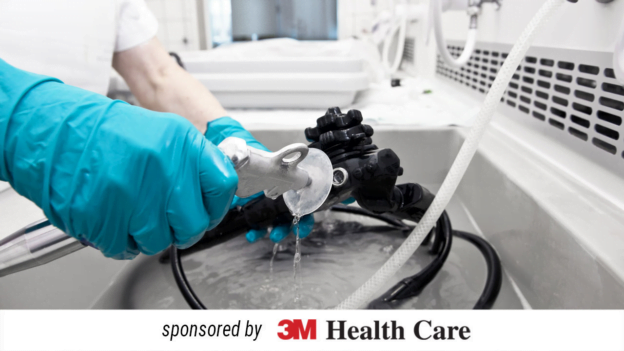Water quality is critical in any process within a Sterile Processing Department (SPD). Inadequate water quality during medical device reprocessing can cause a number of negative outcomes, including:
- Malfunction of the device during the patient’s procedure, such as corrosion and difficulties with mechanical movement of surgical instruments due to salt deposits and debris.
- A shortened service life of equipment and medical devices due to the gradual accumulation of organic and inorganic deposits.
- Tissue irritation resulting from residues in a device or implant. For example, pyrogenic reactions due to high levels of endotoxins or other pyrogenic agents left as residues from water containing high microbial levels.
- Infection of the patient resulting from the use of contaminated devices. Salt or organic deposits from water used in reprocessing could inactivate disinfectants or sterilizers, protecting microorganisms from the disinfection or sterilization process.
- Non-condensable gases in the steam supply to sterilizers, which can significantly affect sterilizer performance and process efficiency, causing inconsistencies in sterilizer performance and Bowie-Dick test results.
Therefore, water quality and its effective treatment are issues of relevance in the reprocessing of medical devices.
Learning Objectives
- Understand the importance of water quality in the reprocessing of medical devices and its impact on patient safety and device performance.
- Identify the types of water hardness and their effects on medical device reprocessing, including the formation of lime crusts and deposit accumulation.
- Describe various methods of water treatment and their role in improving water quality for medical device reprocessing.
About the Author

Dr. Ana Laura Villalón is the Head of Sterilization Service and Endoscope Reprocessing Unit and member of the Infection Control Committee at the Santa Isabel de Hungria Hospital in Mendoza, Argentina. Dr. Villalón has over 20 years of experience in device reprocessing and sterilization management, and she participates on the Permanent Committee on Sterilization of the Ministry of Health of Mendoza. Dr. Villalón advocates for improving efficiency and education within Sterilization Processing Departments in Latin America.
Photo credit: 96829743 © sielemann | www.gettyimages.com





